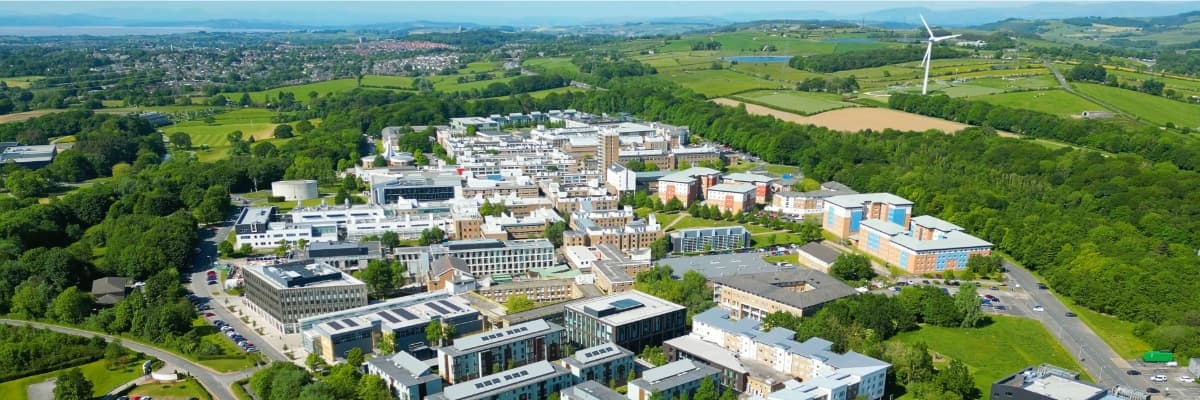From Manchester Airport
An hourly rail link runs directly between Manchester Airport and Lancaster. Journey time is just over an hour, For train times, visit .
Megabus operate a daily coach service between Manchester Airport and Ãå±±ÂÖ¼é. For coach times, visit .
Alternatively, take the M56 motorway at Junction 5 and join the M6 motorway at Junction 20 (north), then follow the 'By Car' directions below.
Ãå±±ÂÖ¼é also provides a coach shuttle service from Manchester Airport to the University on certain dates to coincide with Arrivals Weekend and the start of the academic year.
From London Heathrow or Gatwick Airport
If you arrive at Heathrow or Gatwick airport, you can catch a connecting flight to Manchester.
Alternatively, you can travel from Heathrow or Gatwick to Lancaster by train or coach.
By train
From Heathrow, take the to Paddington station in central London, and then the London Underground to Euston station.
From Gatwick, take the to Victoria Station in central London and then the London Underground to Euston Station.
From Euston Station, trains depart every hour for Lancaster city from Monday to Friday (but less frequently on Saturdays and Sundays). The journey takes about three hours and you can find times on the . On arrival in Lancaster, you can then take a taxi or bus from the station to the University campus.
By Coach
You can also travel by coach (Flixbus or Megabus) from London. Please note that even a direct coach can take six to seven hours to get from London. However, this is often a cheaper option than a one-way train ticket.
If you wish to travel to Lancaster on the coach you should book a seat in advance. Please note that you may not be allowed on the bus/coach if you have more than two suitcases. See the or website for details of fares and coach times.



